How to Go on Tour: From Booking Gigs to Hitting the Road

Embarking on a tour is a significant milestone for any musician or band. It's an opportunity to connect with fans, showcase your talent, and expand your audience.
Quick Summary
Going on tour is a pivotal experience for musicians, requiring meticulous planning and execution. Setting clear goals is essential, along with thorough research to select appropriate venues. A professional press kit is vital for booking gigs, while collaboration with promoters can ease the process. Budgeting and effective promotion are crucial for success, along with engaging with fans and managing unforeseen challenges. Post-tour, it's important to evaluate performance and leverage experiences
However, the process of going on a tour involves meticulous planning and execution.
Planning Your Tour
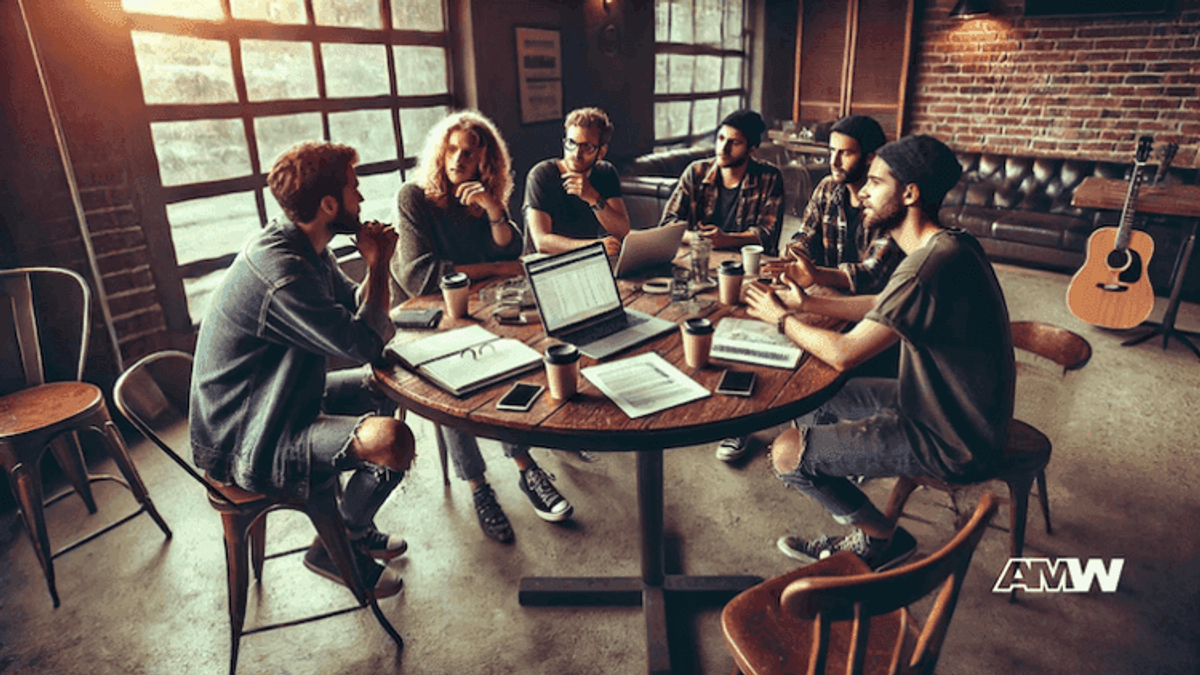
Setting Goals and Objectives
The first step in planning your tour is to set clear goals and objectives.
Ready to Grow Your Business?
Get a custom strategy tailored to your goals.
What do you hope to achieve? Are you looking to increase your fan base, promote a new album, or generate revenue?
Having specific goals will help you to be focused and evaluate your success post-tour. Consider the geographical areas where you have the most fans and potential for growth. Use data from social media and streaming platforms to make informed decisions.
Research and Preparation
Once your goals are set, dive into research and preparation. Identify the cities and venues that align with your target audience. Understand the local music scenes and demographics to tailor your performances and promotional efforts accordingly. Gather information on venue sizes, typical crowd turnouts, and preferred genres.
This will help you choose the right locations that resonate with your music and attract the right audience.
Booking Gigs
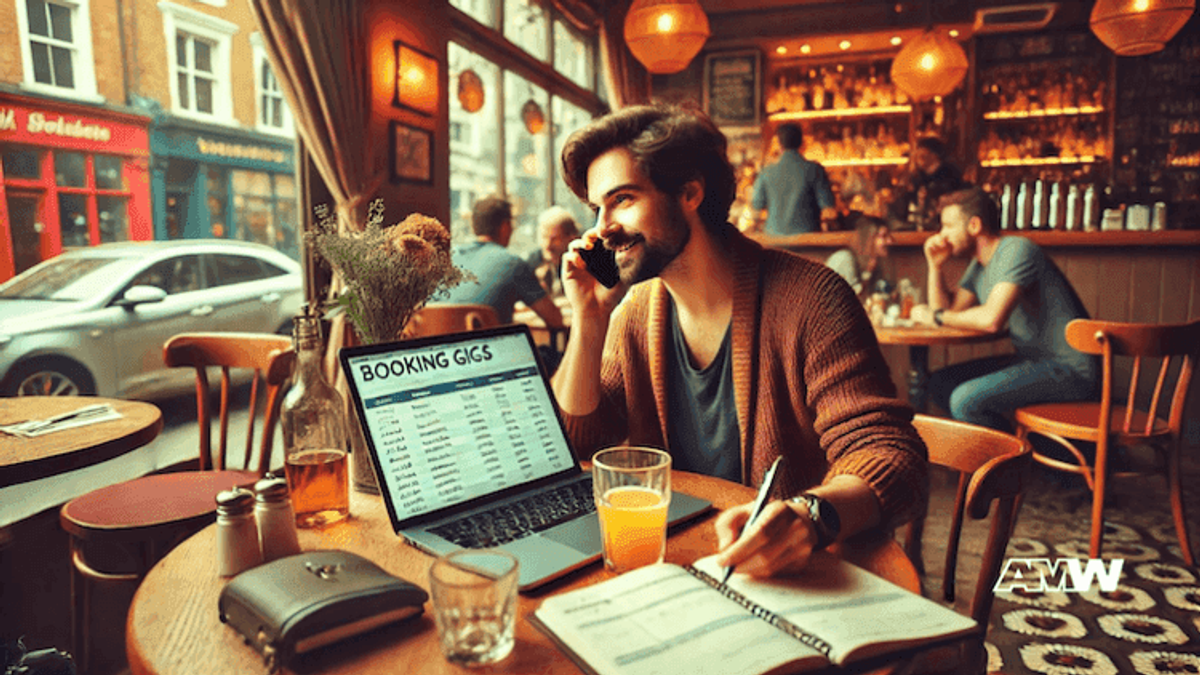
Creating a Press Kit
A professional press kit is essential for booking gigs. It serves as your introduction to venue managers, promoters, and booking agents. Your press kit should include a compelling band bio, high-quality photos, music samples, and press clippings.
Highlight any notable achievements, past performances, and unique aspects of your act. Make sure your contact information is clear and easily accessible.
Reaching Out to Venues
Crafting effective email pitches is crucial when reaching out to venues. Personalize your emails to show that you've done your homework about the venue and its audience. Be concise but persuasive, emphasizing why your band is a great fit for their lineup. Follow up if you don't receive a response, but be respectful of their time.
Persistence pays off, but over-communication can be detrimental.
Working with Promoters and Agents
Collaborating with promoters and booking agents can significantly ease the booking process. They have built relationships with venues and can negotiate better terms for you. Ensure you understand the commission structures and contractual obligations before signing any agreements.
A good promoter or agent can open doors to more prestigious venues and larger audiences, making the investment worthwhile.
Tour Logistics
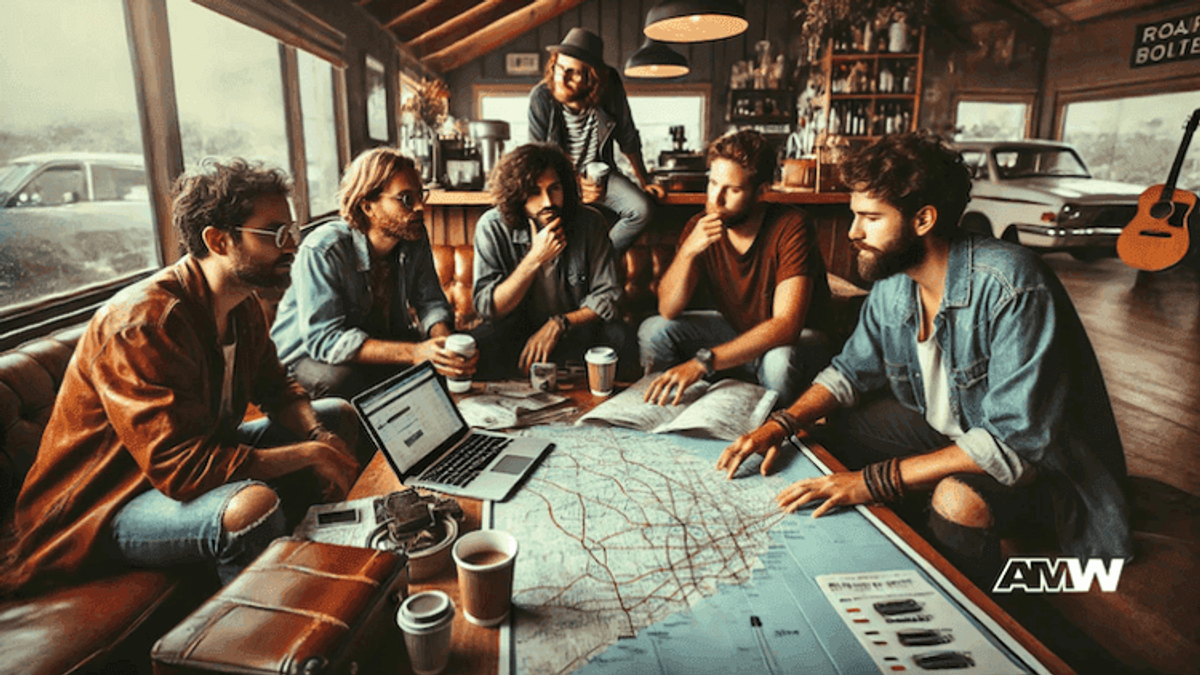
Budgeting and Financing
Budgeting is a critical aspect of tour planning. Begin by estimating all potential expenses, including travel, accommodation, food, and promotion. Identify your revenue streams, such as ticket sales, merchandise, and sponsorships.
Creating a detailed budget can help you manage your finances effectively and avoid unexpected costs. Look for ways to secure additional funding, such as sponsorships, crowdfunding, or grants.
Scheduling and Routing
Efficient route planning can help you save time and money. Plan your route to minimize travel distances between gigs, reducing fuel costs and travel time.
Consider the logistics of your equipment and crew, ensuring that everyone can move smoothly from one location to the next. Avoid backtracking and aim to create a logical flow of shows that maximizes exposure while minimizing logistical headaches.
Accommodation and Transportation
Choosing the right accommodation and transportation is vital for a successful tour. Depending on your budget, options range from hotels and Airbnb to hostels and staying with friends or fans. Ensure that your accommodations are comfortable and convenient to your venues.
For transportation, decide whether to rent a van, bus or fly between locations. Consider the size of your crew and the amount of equipment you need to transport.
Ready to Grow Your Business?
Get a custom strategy tailored to your goals.
Promotion and Marketing
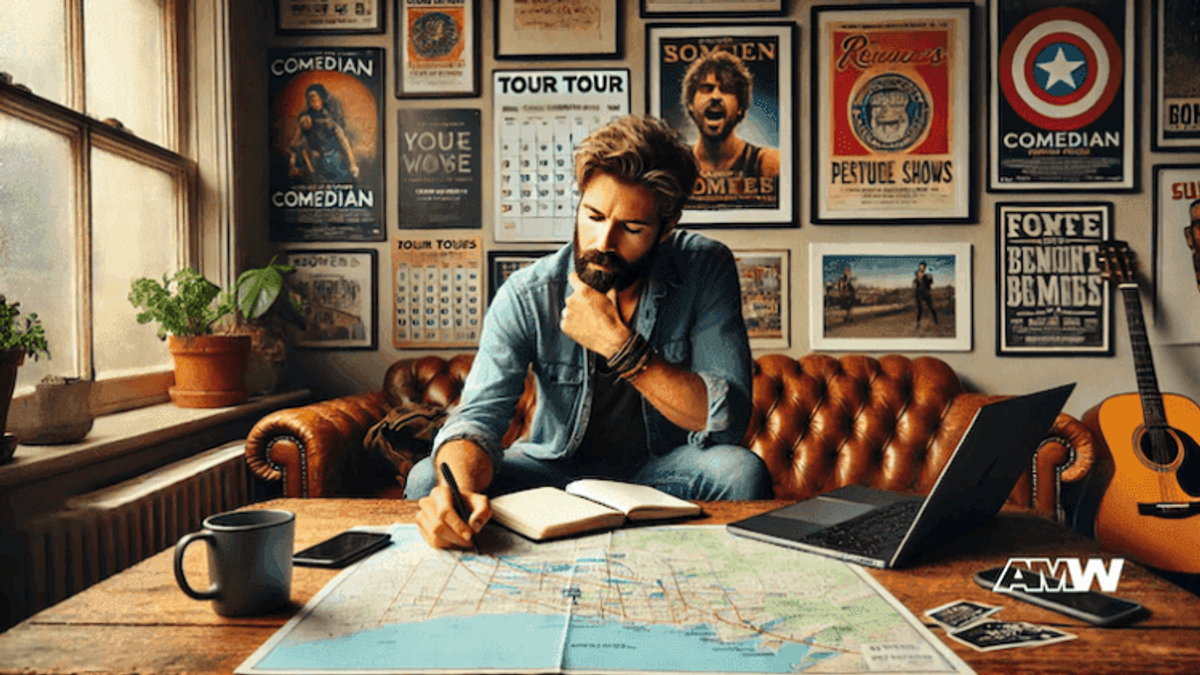
Pre-Tour Promotion
Promoting your tour well in advance is key to ensuring good attendance at your shows. Use social media platforms to announce your tour dates and engage with your fans. Create a dedicated tour page on your website with all relevant information.
Collaborate with local media outlets, bloggers, and influencers to spread the word. Utilize email newsletters to keep your fan base informed and excited.
Creating Buzz
Generating excitement around your tour can significantly increase attendance and engagement. Use video content and live streaming to give fans a behind-the-scenes look at your preparation process.
Share rehearsal clips, travel adventures, and candid moments to build anticipation. Encourage fans to share their excitement on social media using a dedicated tour hashtag.
Merchandise and Sales
Merchandise can be a significant revenue stream during your tour. Invest in designing and producing high-quality merchandise that resonates with your audience.
T-shirts, posters, and exclusive items can enhance the fan experience and boost your income. Maximize sales by offering merchandise at gigs and through your online store. Consider bundling merchandise with ticket sales for added value.
During the Tour

Staying Healthy and Motivated
During a tour, it's important to prioritize self-care to maintain your health and motivation. Touring can be physically and mentally demanding. Ensure you and your team get enough rest by sticking to a reasonable schedule and avoiding late-night parties.
Eat balanced meals, stay hydrated, and exercise when possible. Mental health is equally important; encourage open communication within your team, and take time for personal relaxation and reflection.
Engaging with Fans
Your fans are the lifeblood of your tour. Make every effort to connect with them both on and off the stage. After your performances, spend time meeting fans, signing autographs, and taking photos. Use social media to keep fans updated with your tour progress, sharing behind-the-scenes content and personal stories.
Creating a strong bond with your audience will enhance their experience, leading to long-lasting memories and loyalty.
Handling Unexpected Challenges
Tours rarely go perfectly according to plan, so it's important to be prepared for unexpected challenges. Have contingency plans in place for common issues such as vehicle breakdowns, equipment failures, or illness. Keep a list of local contacts for emergencies, including mechanics, healthcare providers, and equipment rental services.
Stay flexible and keep a positive attitude; how you handle challenges can impact your tour experience.
Post-Tour Wrap-Up
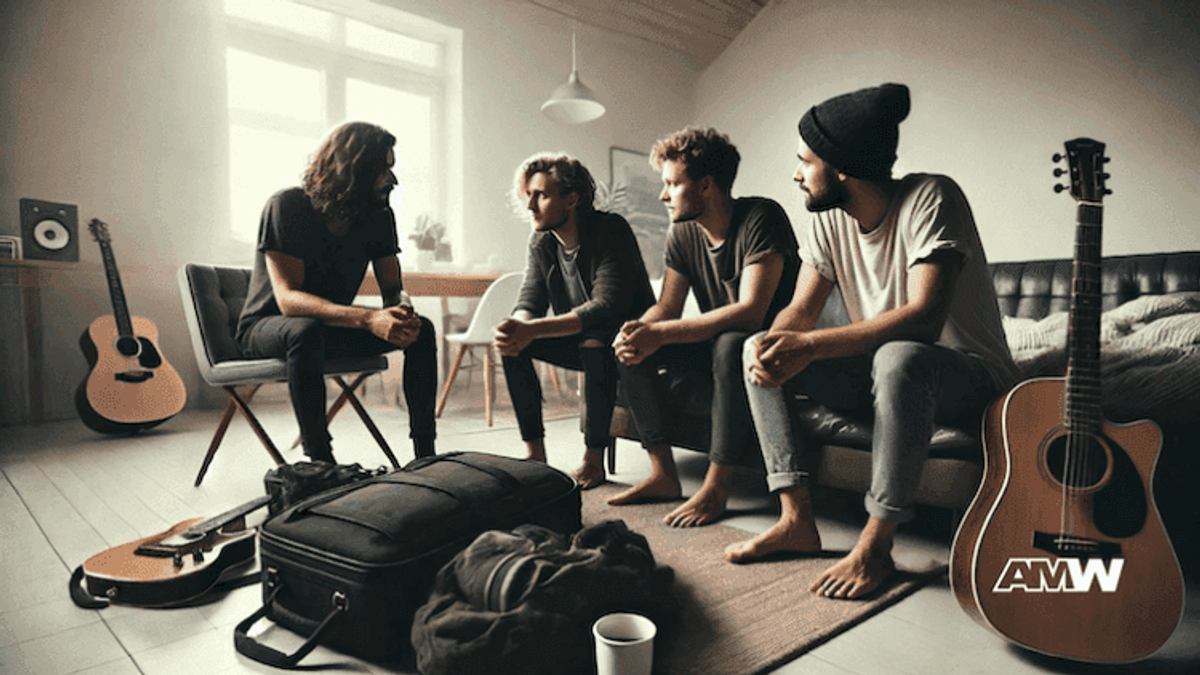
Reviewing and Analyzing Performance
Once the tour is over, take time to review and analyze its performance. Compare the actual outcomes with your initial goals and objectives. Gather feedback from venues, promoters, and fans to understand what worked well and what could be improved.
This evaluation will give you helpful insights for your upcoming tours and assist you in refining your strategies.
Ready to Grow Your Business?
Get a custom strategy tailored to your goals.
Planning for the Future
Leverage your tour experience to plan for the future. Use the data and insights gained to improve your next tour. Maintain the momentum by staying active on social media, engaging with your fans, and sharing highlights from your tour. Consider recording live performances for future releases or promotional content.
Start brainstorming and planning your next tour, using the lessons learned to make it even more successful.
Conclusion

Going on tour is a complex and demanding endeavor, but with careful planning and execution, it can be a rewarding and transformative experience for your band. By setting clear goals, booking gigs effectively, managing logistics, promoting your tour, and staying engaged with your fans, you can ensure a successful and memorable tour.
Don't forget to stay adaptable, always be open to learning new things, and continuously fine-tune your approach with each tour you embark on.
FAQ
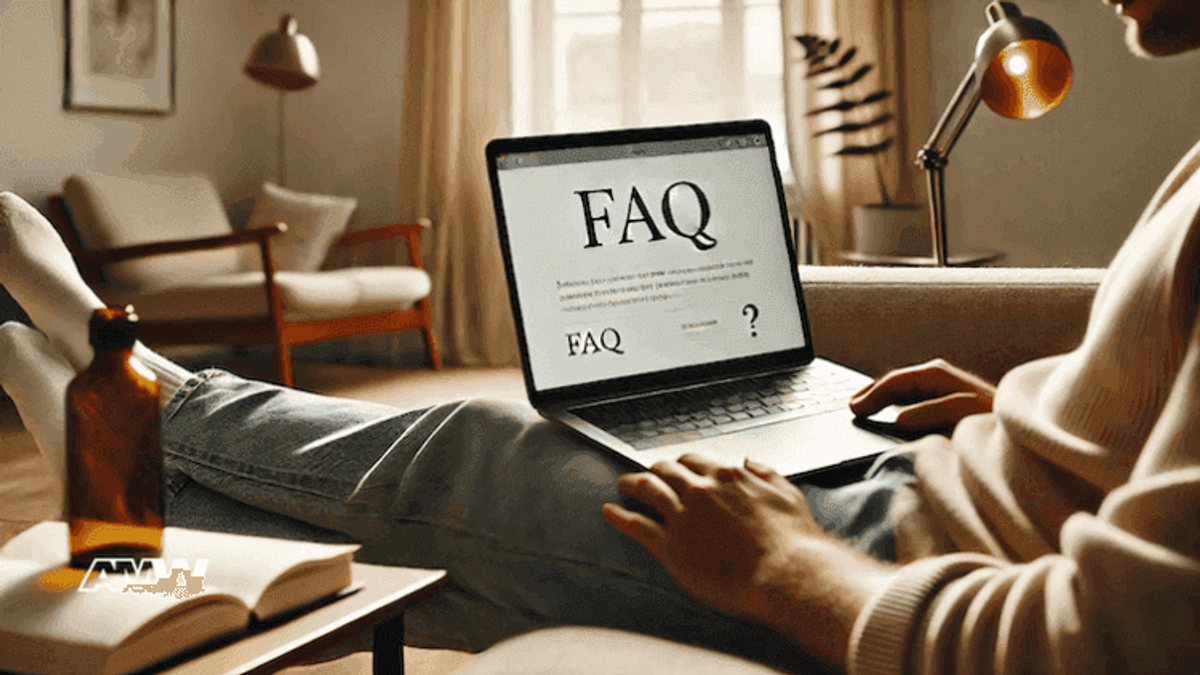
How far in advance should I start planning my tour?
It depends on the scope of the tour. Ideally, you should start planning at least 6-12 months or more in advance.
What should be included in a press kit?
A press kit should include a band bio, high-quality photos, music samples, press clippings, and contact information.
How do I find venues to book?
Research venues in your target cities, use industry contacts and consider working with a booking agent.
What are the best ways to promote my tour?
Utilize social media and email newsletters, collaborate with local media, and create engaging content like videos and live streams.
How can I manage my budget effectively?
Plan and estimate all expenses in advance, seek sponsorships, and monitor your spending throughout the tour.
What should I do if I face an unexpected challenge on tour?
Have contingency plans in place, stay calm, and adapt to the situation with a positive attitude.
How can I make sure my team remains motivated during the tour?
Prioritize health and well-being, encourage open communication, and address conflicts promptly.
What's the best way to engage with fans during the tour?
Interact with fans during and after shows, use social media to stay connected, and provide unique experiences like meet-and-greets.
How do I evaluate the success of my tour?
Compare your performance against your initial goals, gather feedback, and analyze financial outcomes.
What should I do after the tour ends?
Conduct a thorough review, thank your team and fans, and start planning future activities to maintain momentum.
Happy touring!
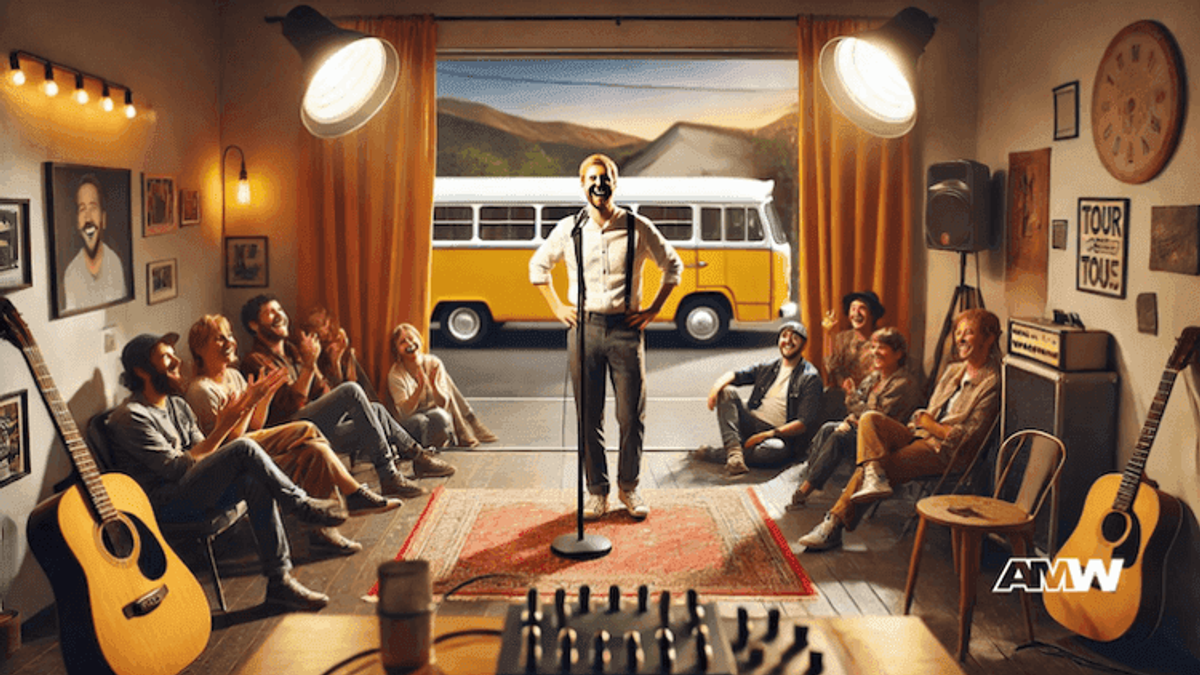
Ready to Grow Your Business?
Get a custom strategy tailored to your goals.
Frequently Asked Questions
How far in advance should musicians start planning their first tour?
Musicians should start planning their tour 3-6 months in advance, especially for first-time tours. This timeframe allows adequate time for venue research, booking confirmations, budget planning, and promotion. Popular venues book months ahead, and advance planning ensures better availability and rates for accommodation and transportation. Early planning also provides sufficient time to build anticipation through marketing campaigns and allows for contingency planning if initial venue options fall through.
What should be included in a professional music press kit for venue booking?
A professional press kit should include a compelling band biography, 3-5 high-resolution photos, 3-4 best music samples or streaming links, press clippings or reviews, notable achievements and past performance highlights, technical requirements, and clear contact information. Include social media follower counts and streaming statistics to demonstrate your fanbase. Keep it concise but comprehensive - venue managers receive many submissions and need quick access to essential information about your act.
How much money do bands typically need to budget for their first tour?
Tour budgets vary widely based on distance, duration, and band size, but first-time touring bands should budget $200-500 per day for essential expenses. This includes gas ($50-100/day), accommodation ($60-150/night), food ($30-50/person), and miscellaneous costs. A week-long regional tour might cost $1,500-3,500 total. Factor in equipment maintenance, promotion costs, and keep 20% extra for emergencies. Revenue from ticket sales and merchandise can offset these costs significantly.
What's the most efficient way to plan tour routing and scheduling?
Plan your tour route geographically to minimize travel time and costs by avoiding backtracking. Start with your strongest markets and build outward in a logical flow. Use mapping tools to calculate drive times and fuel costs between venues. Schedule shows 1-3 days apart to allow for travel and rest. Book weekend shows in major markets and weekday shows in smaller cities. Consider seasonal factors and local events that might affect attendance when scheduling dates.
How do touring musicians effectively promote their shows to increase attendance?
Start promoting 6-8 weeks before tour dates using social media, email newsletters, and your website. Create event pages on Facebook and collaborate with local venues for cross-promotion. Reach out to local music blogs, radio stations, and influencers in each tour city. Use targeted social media ads for specific geographic areas. Engage with local bands for potential opening slots or cross-promotion. Share behind-the-scenes content and countdown posts to build anticipation and encourage fan sharing.
What equipment and transportation options work best for touring bands?
For small bands, a reliable van or large SUV works well for regional tours, accommodating 3-5 people plus gear. Consider rental vehicles if yours isn't tour-ready. Essential equipment includes backup instruments, spare cables, basic tools, and a portable PA for acoustic sets. Pack efficiently using cases and organize gear for quick load-in/load-out. For longer tours, consider a trailer for additional space. Flying between distant markets and renting backline equipment locally can be more cost-effective than driving.
How can touring musicians maximize merchandise sales during their tour?
Design tour-specific merchandise like city-date t-shirts and posters that create urgency and exclusivity. Price items competitively - t-shirts typically sell for $15-25, with higher margins on smaller items like stickers and pins. Set up merchandise tables prominently near the venue entrance and have band members personally interact with fans at the merch table after shows. Offer bundle deals and accept multiple payment methods including mobile payments. Track inventory and sales data to optimize future merchandise strategies.
Related Resources
Calculators
Pricing Guides
Key Terms
The deliberate sequencing of release platforms (theatrical, streaming, VOD) to maximize revenue across all distribution channels.
Creative ProducerA producer focused on story, talent, and creative elements rather than primarily on financing and business aspects.
Stem DistributionReleasing individual component tracks of a song separately, enabling remixing, sync licensing, and fan creativity.
Music Sync AgentRepresentative who secures placement of music in film, TV, advertising, and games.
Social AudioShort-form music content created for social media platforms.
Related Articles

What is Music PR?
Public Relations (PR) in the music industry, often called Music PR, plays a crucial role in shaping artists' careers and influencing how music is perceived and consumed globally. At its core, Musi

Effective Event Media Coverage Strategies
Adequate media coverage can significantly enhance an event's visibility and success, transforming it from a simple gathering into a widely recognized and impactful occasion. Whether it's a corporate c
Plan a Concert: Creating a Concert Planning Strategy
Planning a concert can be an exciting endeavor that may bring a community together through live music and create memorable experiences. Whether it's a small concert event featuring local bands or
